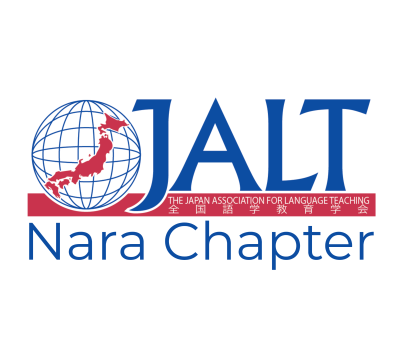 Dr. Averil Coxhead specialises in vocabulary learning, with particular focus on English for academic (EAP) and/or specific (ESP) purposes. Many are familiar with her work on the Academic Word List (AWL)—one of the most well tried and tested word-lists available. In this presentation, she focused our attention on lexical bundles, which she defined as ‘three or more words repeated without change,’ for example, on the other hand. Many of the benefits of learning these set phrases seem common sense to us—gains in fluency, more native-like and idiomatic expression, etc. On the other hand…
Dr. Averil Coxhead specialises in vocabulary learning, with particular focus on English for academic (EAP) and/or specific (ESP) purposes. Many are familiar with her work on the Academic Word List (AWL)—one of the most well tried and tested word-lists available. In this presentation, she focused our attention on lexical bundles, which she defined as ‘three or more words repeated without change,’ for example, on the other hand. Many of the benefits of learning these set phrases seem common sense to us—gains in fluency, more native-like and idiomatic expression, etc. On the other hand…
We were taken on a whirlwind tour of corpus linguistics, and Dr. Coxhead’s own research, and introduced to some of the challenges that arise in using lexical bundles in the classroom. The following is a top-ten list of lexical bundles used in academic English (Byrd & Coxhead, 2010).
1) On the basis of, 2) On the other hand, 3) As a result of, 4) The end of the, 5) At the end of the, 6) The nature of the, 7) At the same time, 8) In terms of the, 9) In the form of, 10) In the absence of
Dr. Coxhead highlighted the structural features and limited frequency of these bundles as limitations for their use in the classroom. For example ‘on the basis of’ occurred 308 times in an academic English corpus of around 3.5 million words. This means that a learner reading 15,625 words of academic text, could expect to meet this—the number one most frequent lexical bundle in the academic corpus—twice. Not great bang for your buck. These bundles, also tend to be functional, discourse markers that get buried in-between long complex clauses and noun-phrases in academic English. She gave the following as an example.
Clyne’s research provides valuable information on the distribution of a large number of these languages in Australia (Clyne, 1985, 1991, Clyne and Kipp,1996). On the basis of his analyses, Clyne also identifies a number of “unequivocally important” factors as relevant in accounting for different rates of language shift in different communities….
Looking at this extract, it is apparent that a learner would be doing rather well if their major hurdle in comprehending these two sentences were the lexical bundle buried in the middle (highlighted in bold). Furthermore, these phrases tend to lack face validity with learners who already know all the words in the set and resent relearning them as a bundle.
Dr. Coxhead’s message was one of caution—there are so many other things going on in language to compete with a learner’s attention. Not least of all, there are other pre-fabricated lexical formulas; such as, frames with slots, collocations, academic formulas and metaphor. Metaphor, Dr. Coxhead pointed out, with particular reference to Frank Boers’ research, can be much more problematic in L2 comprehension. Dr. Coxhead left us with guidelines to approaching lexical bundles in academic English. We should always be wary of learning lists. We need to draw attention to lexical bundles in context, and revisit them in order to provide the repetition necessary for learning. And we can benefit our learners by being explicit about expectations for learning these bundles.
I’d like to conclude this review noting that Averil Coxhead was one of the most dynamic presenters I’ve seen in a long time. She charmed the audience with warmth and wit, and healthy doses of tales from her homeland, New Zealand. If ever you have a chance to see Averil in action, do not miss the opportunity to see yet another great kiwi teacher-scholar.
Review by Leigh McDowell


Thanks for this! I am a french speaker, studying in italian language. I have to write something about the lexical bundles and after reading this page, i feal ready to start.
Thanks!